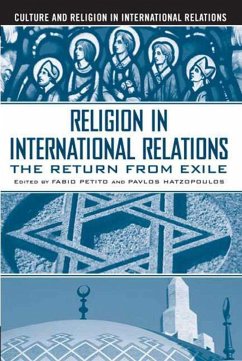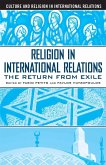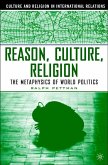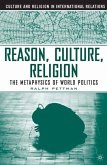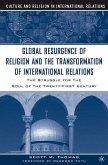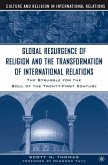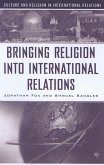Are the secular foundations of international relations sustainable at present? This comprehensive study shows how the global resurgence of religion confronts international relations theory with a theoretical challenge comparable to that raised by the end of the Cold War or the emergence of globalization. The volume tries to shake the secular foundational myths of the discipline and outline the need for an expansion into religiously inspired spheres of thought. It also challenges the most condemning accusation against religion: the view that the politicization of religion is always a threat to security and inimical to the resolution of conflict. Finally, the task of demystifying religion is taken further with an argument for a stronger and "progressive" political engagement of the worldwide religious traditions in the contemporary globalized era.
Are you dissatisfied with how IR theory comes to terms with the place of religion in state and global politics? Then this is the book for you. The essayists examine critically both the clash of civilization thesis and the secular conceit that religion can only be allowed to speak in the private realm. The first thesis intensifies global conflicts. The second overlooks the contestable foundations of secular faith. The result is a book that brings out the importance of religion and carries the potential to help transform international relations theory.-William E. Connolly, author, Why I Am Not A Secularist
The essays in this volume, and the savvy introduction by Hatzopoulos and Petito, inform us of just how vital is religion in international relations today. Well before the events of 9/11, religion was once again-after a long hiatus-on the radar screen of scholars, although many remained unconvinced of its importance. No more. This volume makes a significant contribution to our understanding. -Jean Bethke Elshtain, The Laura Spelman Rockefeller Professor of Social and Political Ethics, The University of Chicago, author of the forthcoming book: Just War Against Terror. The Burden of American Power.
When we talk about religion today, what are we really talking about? The concepts that we have on hand for understanding the status and role of religion in current affairs are by and large obsolete. They only made sense in reference to a certain stability in which one could believe and make people believe in. The disappearance of the necessary conditions for this belief signals the entrance into a world characterized by the evidence of movement. Hence the necessity to rebuild our intellectual tools. This work constitutes an important contribution for such an enterprise. -Patrick Michel, Research Director at CERI, Sciences Po, Paris.
The essays in this volume, and the savvy introduction by Hatzopoulos and Petito, inform us of just how vital is religion in international relations today. Well before the events of 9/11, religion was once again-after a long hiatus-on the radar screen of scholars, although many remained unconvinced of its importance. No more. This volume makes a significant contribution to our understanding. -Jean Bethke Elshtain, The Laura Spelman Rockefeller Professor of Social and Political Ethics, The University of Chicago, author of the forthcoming book: Just War Against Terror. The Burden of American Power.
When we talk about religion today, what are we really talking about? The concepts that we have on hand for understanding the status and role of religion in current affairs are by and large obsolete. They only made sense in reference to a certain stability in which one could believe and make people believe in. The disappearance of the necessary conditions for this belief signals the entrance into a world characterized by the evidence of movement. Hence the necessity to rebuild our intellectual tools. This work constitutes an important contribution for such an enterprise. -Patrick Michel, Research Director at CERI, Sciences Po, Paris.

